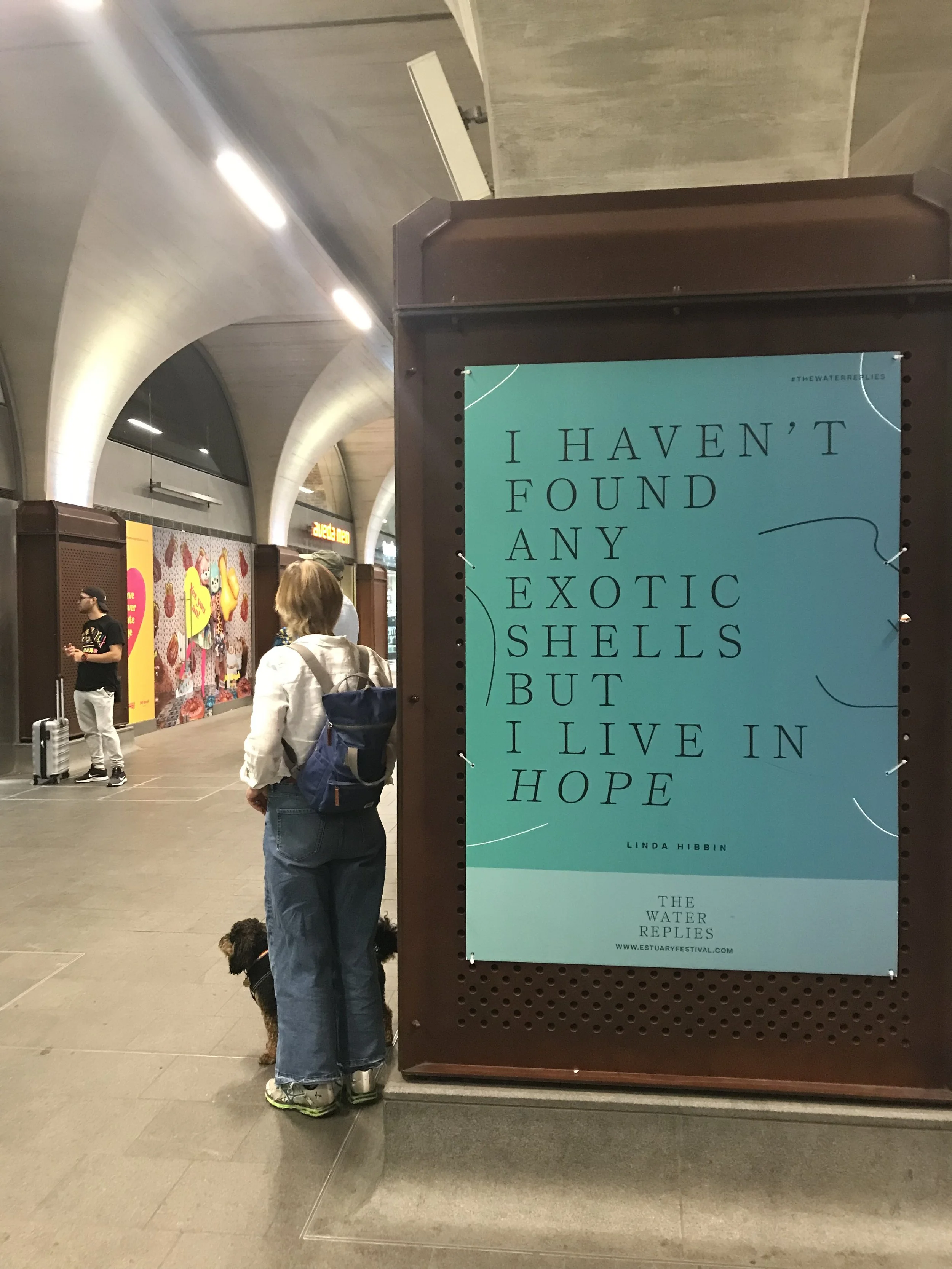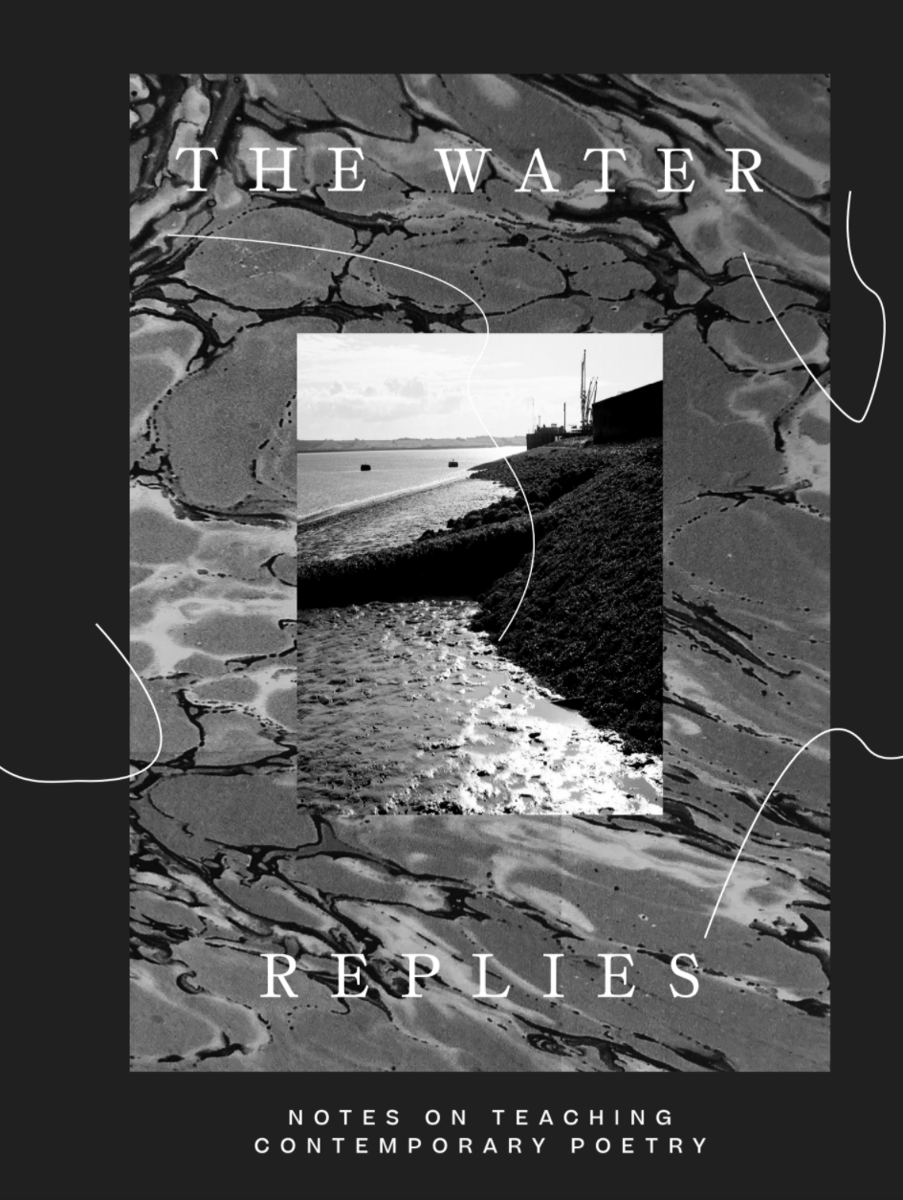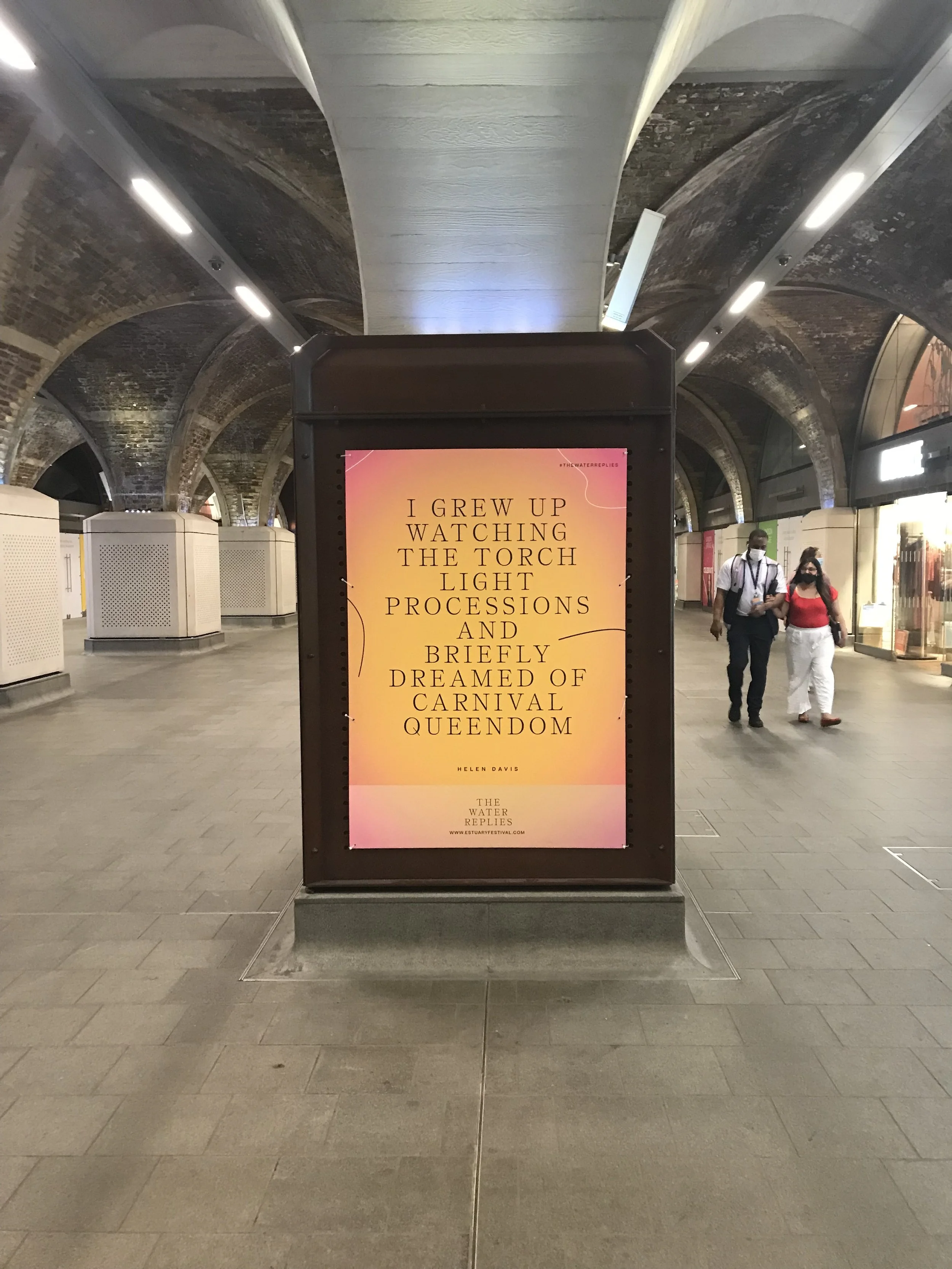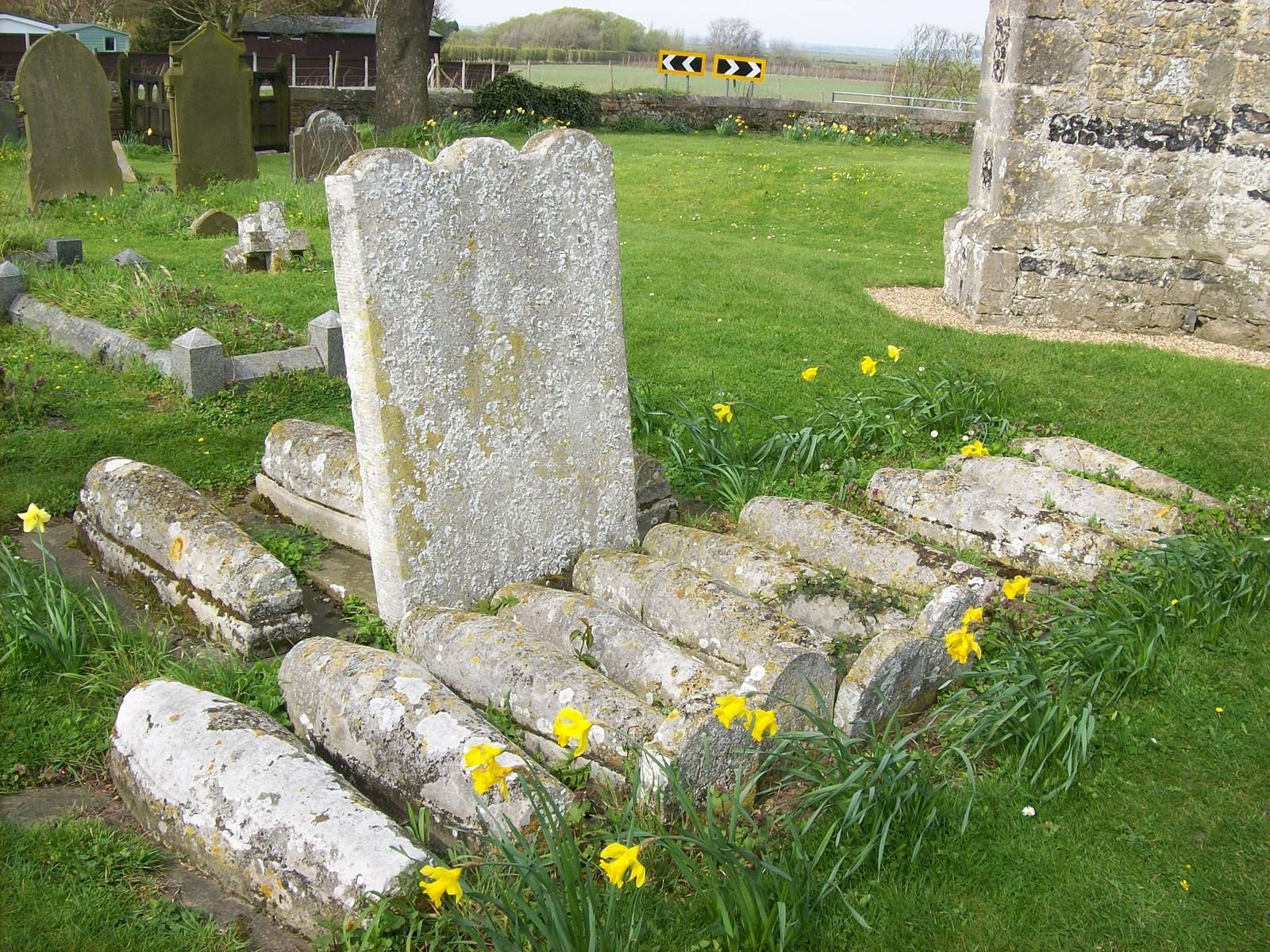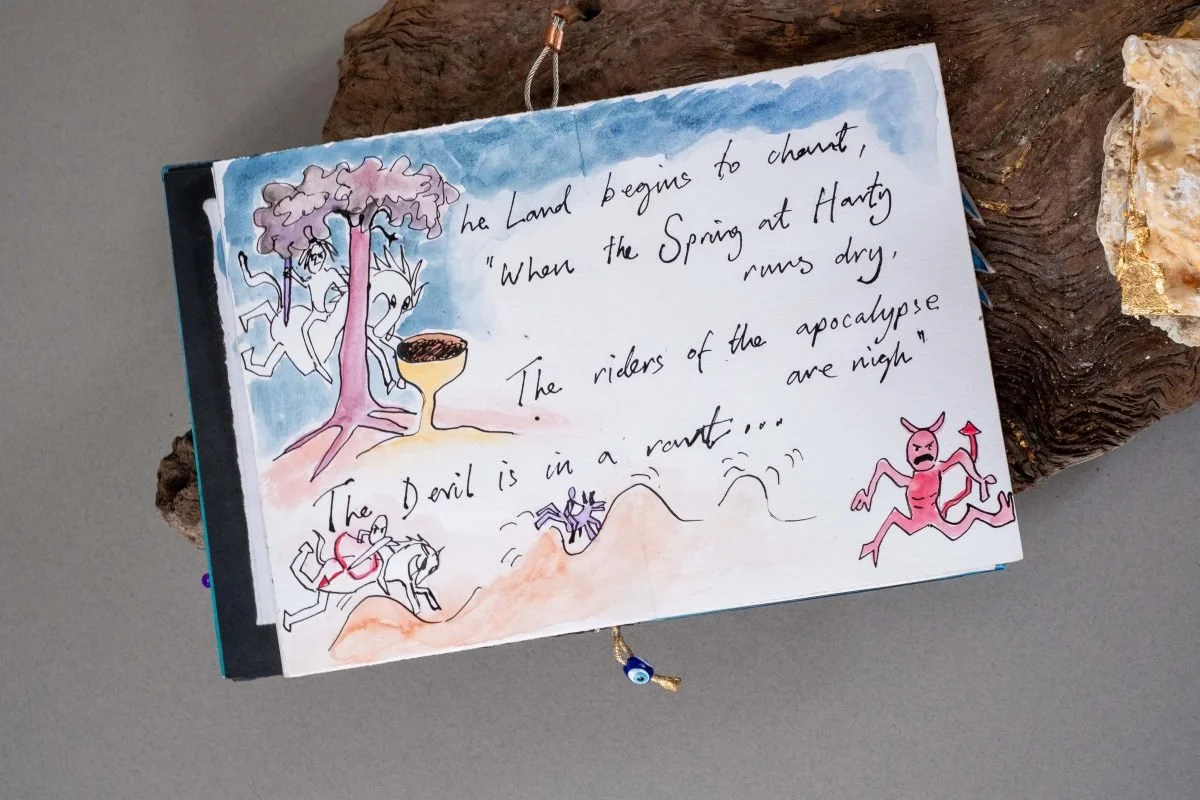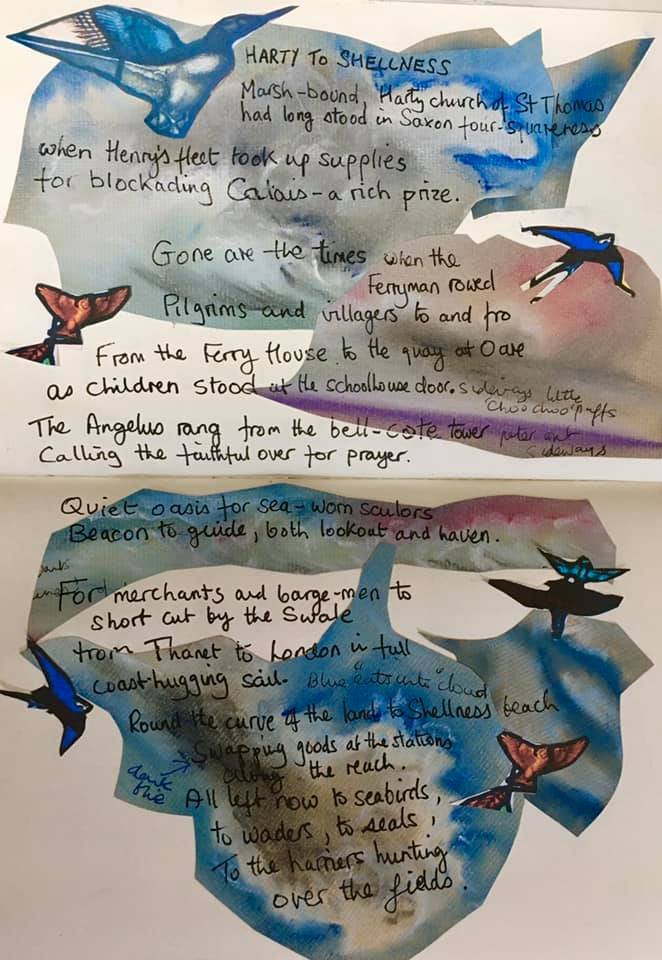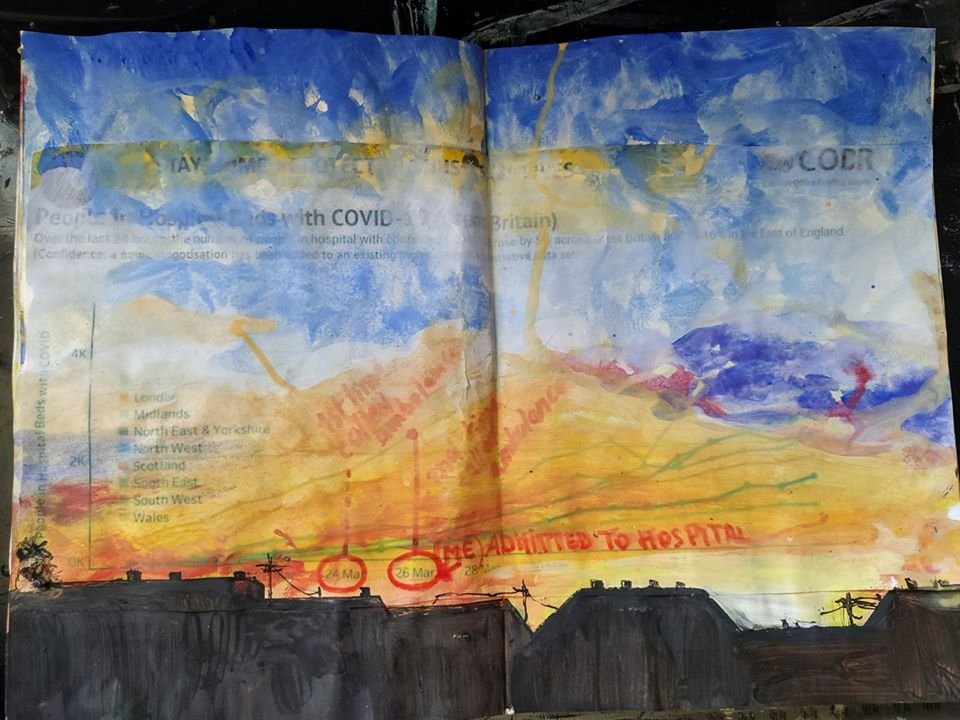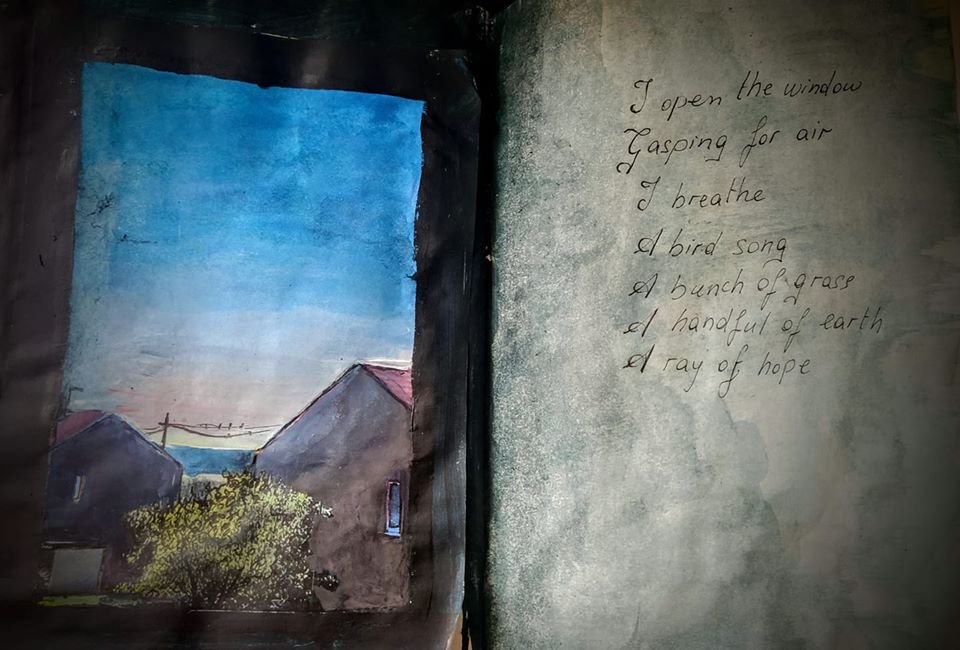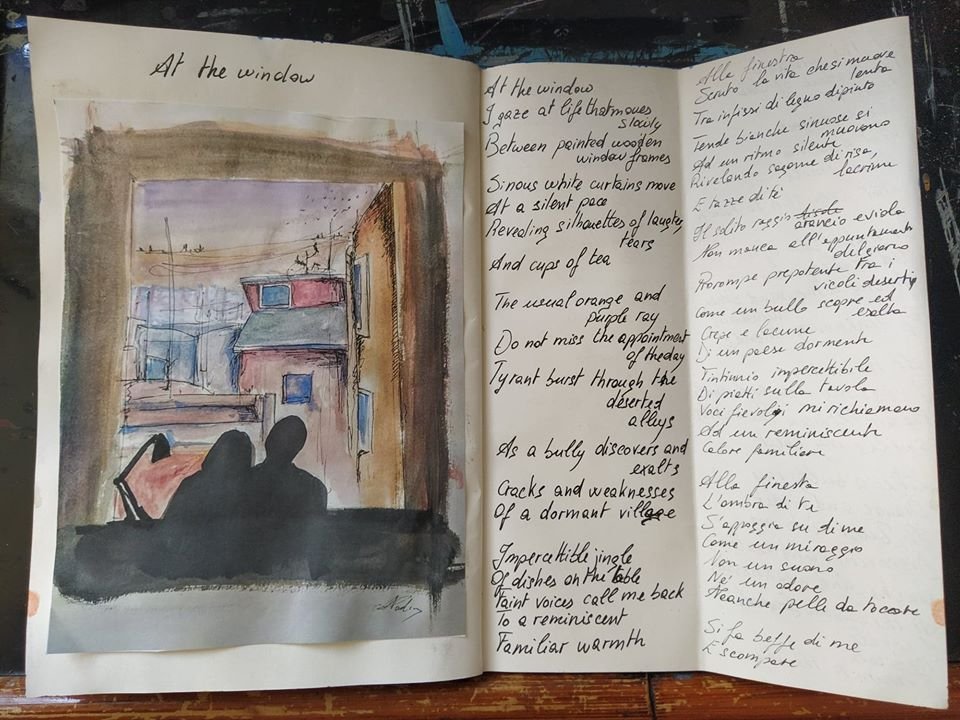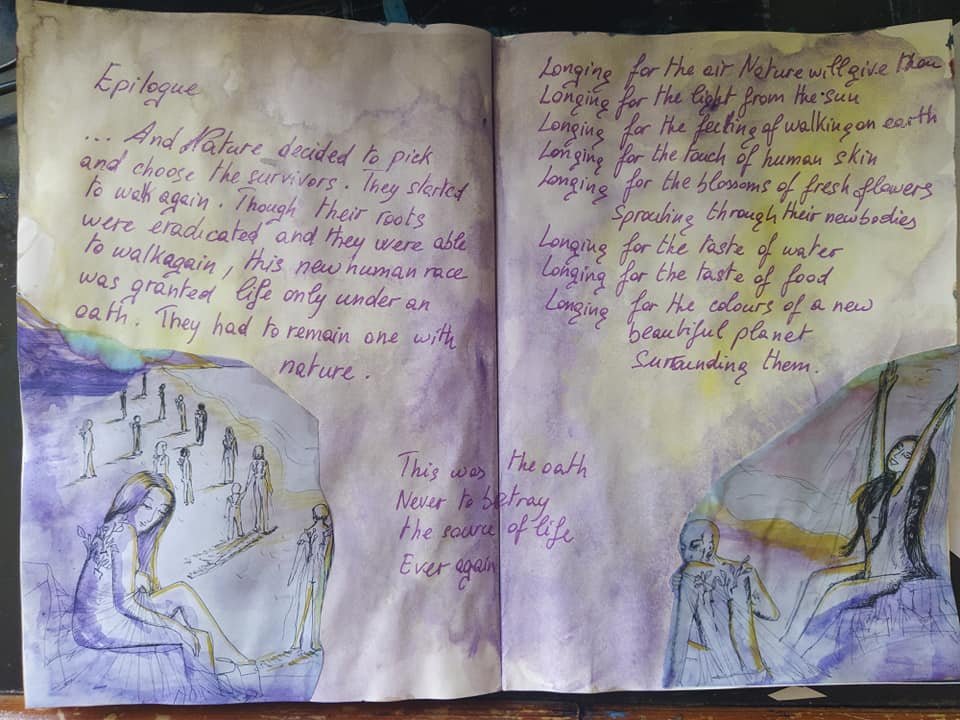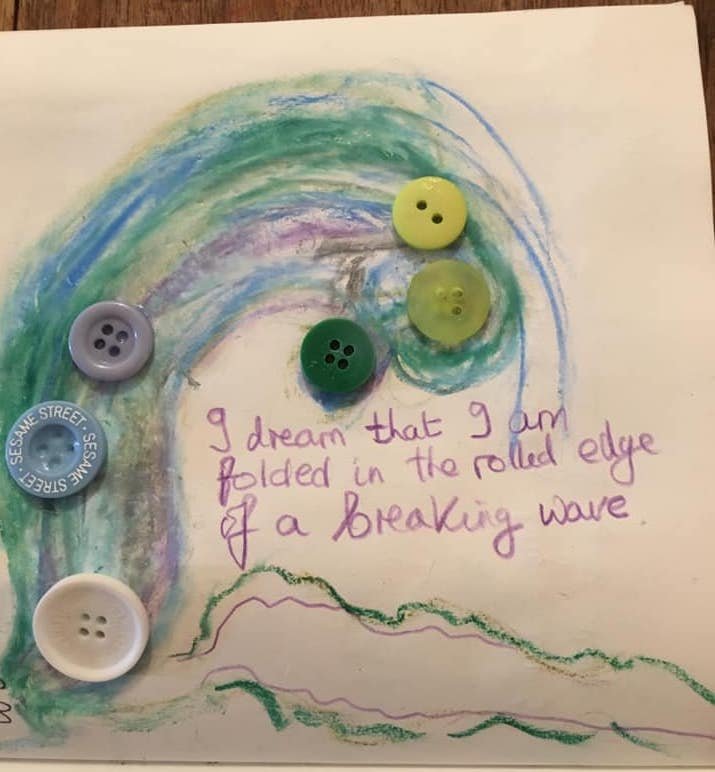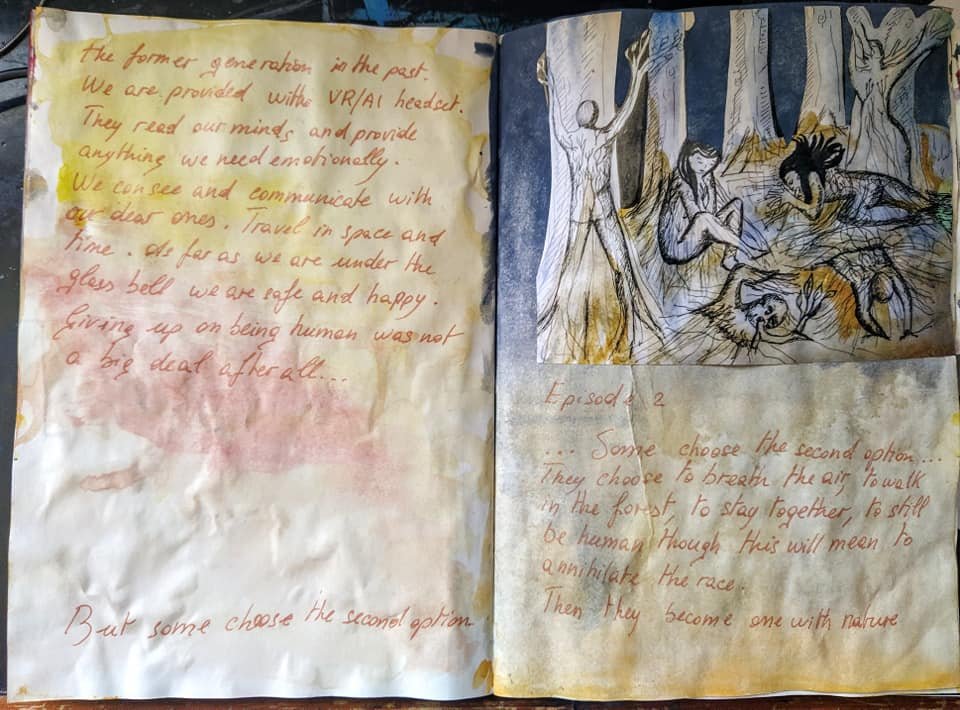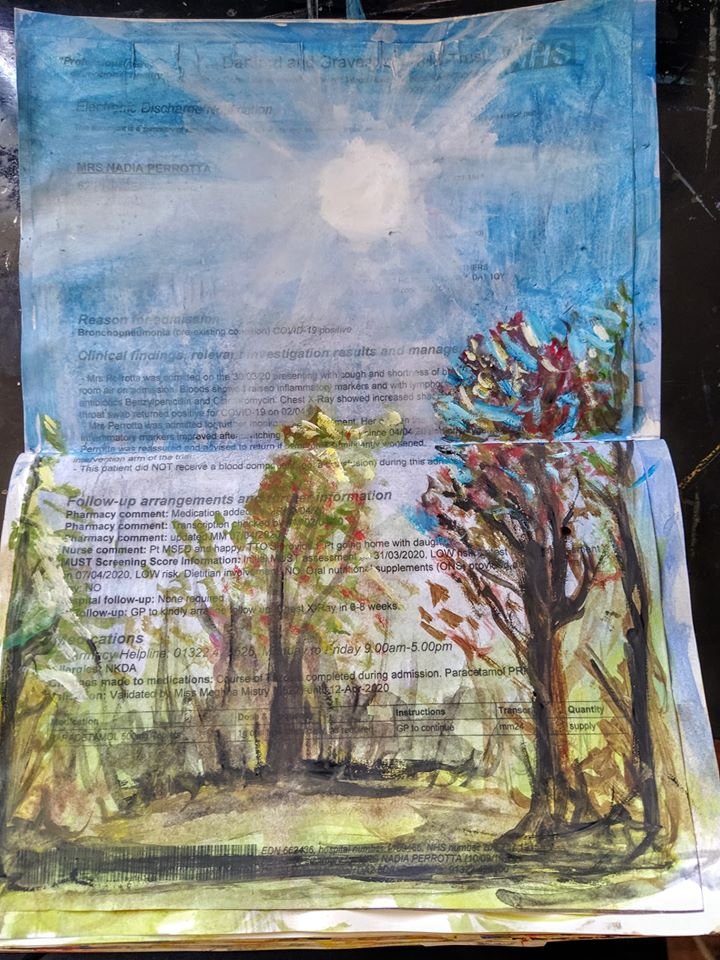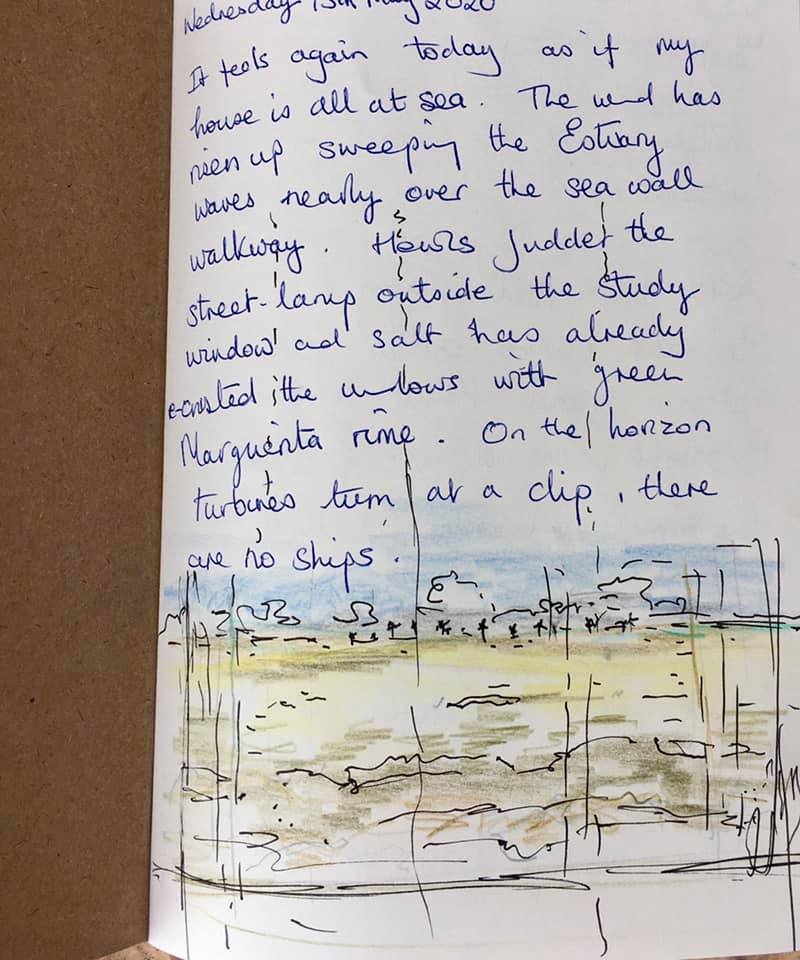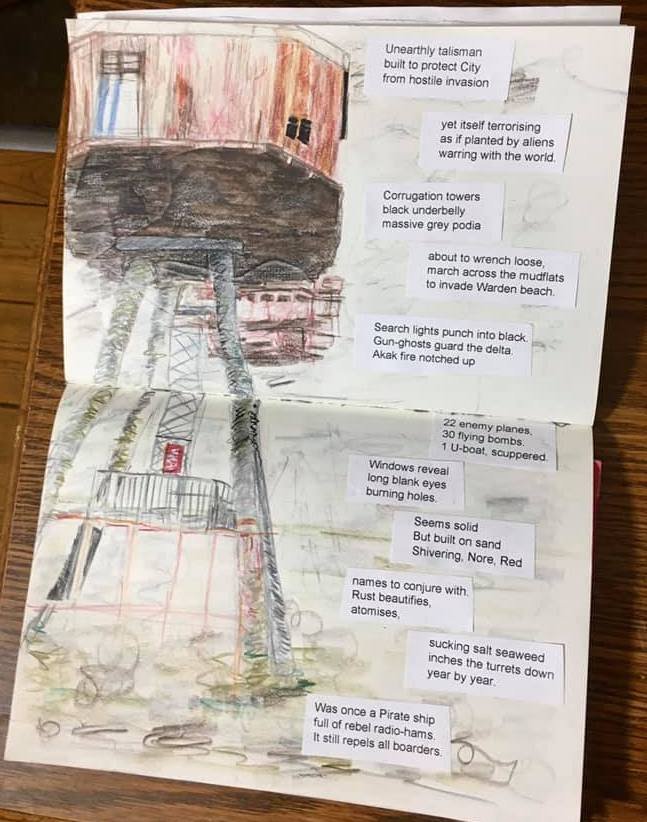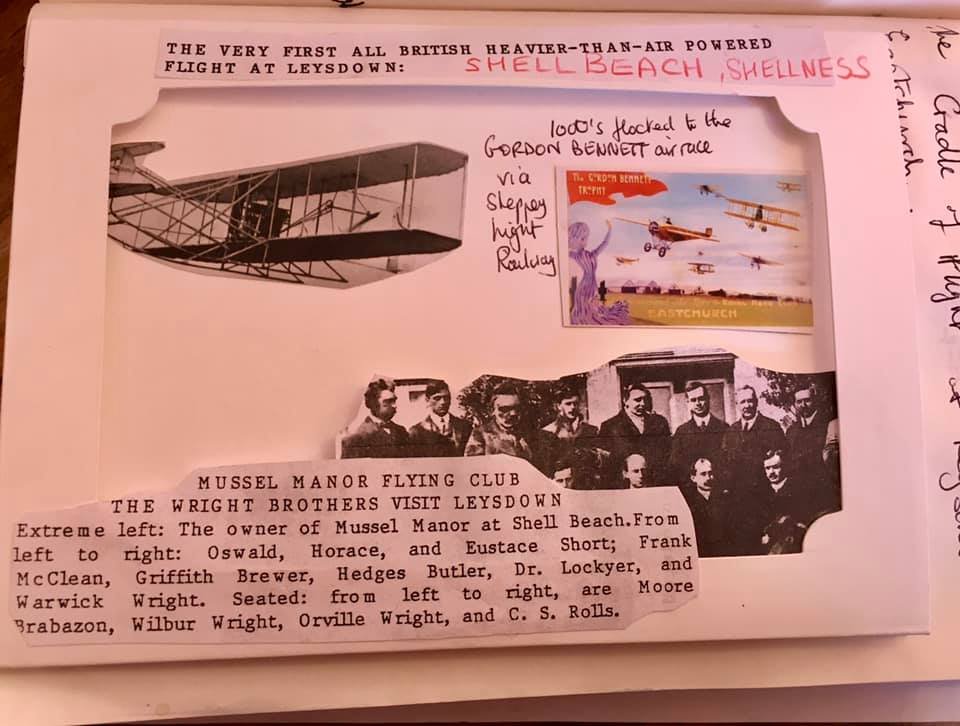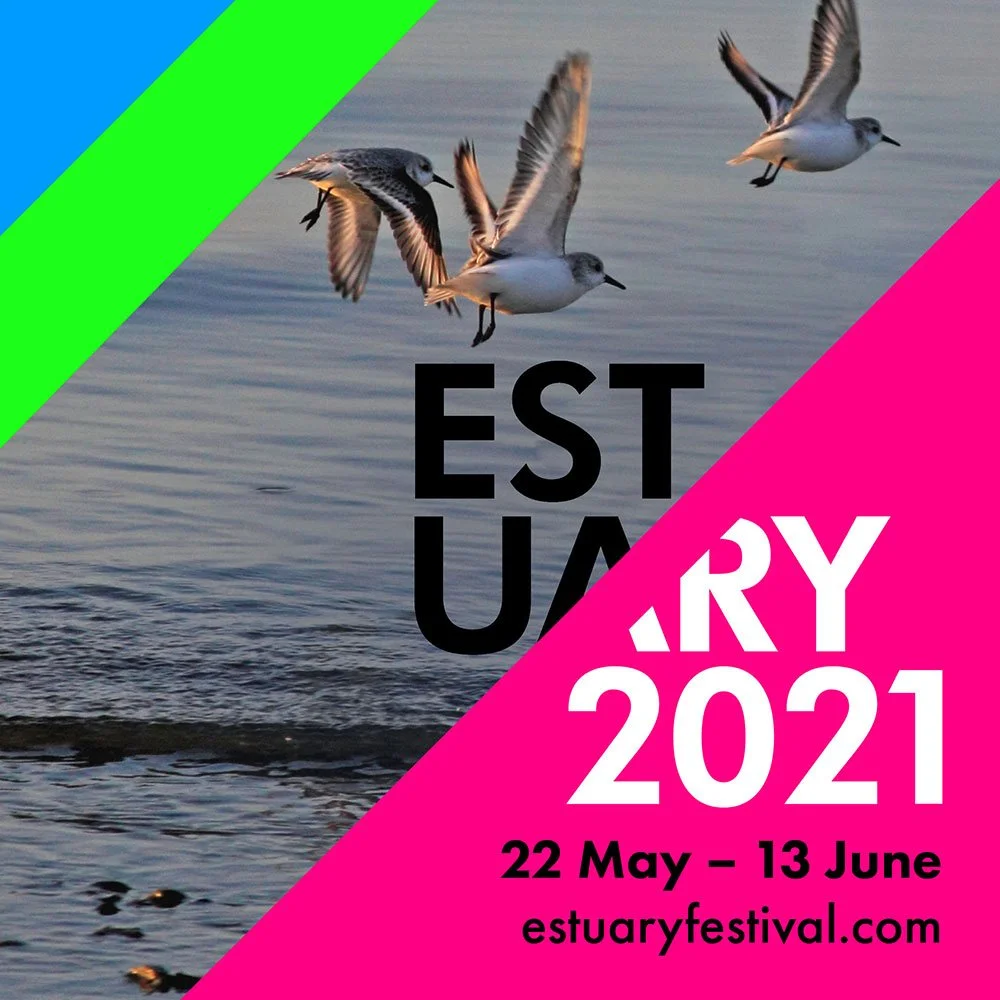Estuary Festival, 2021
I was curator, producer and artist in the second edition of this large-scale arts festival curated in response to spectacular Thames Estuary and the lives, landscapes and histories found there. Over 23 days, a mix of large-scale and intimate visual art, literature, music and film celebrated culture, creativity, recovery and renewal. Alongside an online discussion and events programme, the physical programme, which included performances, installation, immersive storytelling, GPS audio, murals, specific walks and tours, explored and responded to powerful themes resonant to the Estuary, from the climate, to rebellion and imperial legacy.
Estuary 2021 was led by a partnership between estuary-based arts organisations, Metal (South Essex) and Cement Fields (North Kent).
The Water Replies: Notes on Teaching Contemporary Poetry
As a producer on the Water Replies, I managed and edited the lead poets Selina Nwulu and Caroline Bird in creating a publication, The Water Replies: Notes on Teaching Contemporary Poetry. Originally slated as a project to work with young people in schools across South Essex and North Kent to write poetry in response to the Thames Estuary, the book was developed in consultation with teachers in response to the pandemic lockdown. Designed to inspire and support the creation of poetry with school pupils, the book is a set of provocations, thoughts, ideas and original poems by Selina and Caroline.
A free digital copy of the book is available for download HERE.
To accompany the book, we also put together an online collection of worksheets, poems and teaching resources suitable for a broad range of ages, subjects and abilities. The free resources are available to download HERE.
In the Mouth of the River: Water, Empire & Rebellion, The Vestry, St James’ Church, Cooling
The mouth of the river is where its roar quiets to a gasp at it fans out into a larger body of water like the Thames does into the North Sea just beyond St James Church in Cooling, North Kent. As an artist and curator tasked with creating a sound installation in the beautiful, cockleshell lined vestry of the church, I was intrigued by how the word ‘mouth’ opens up a wealth of possibilities to mould language into powerful meaning. It suggests the river can sing, scream, lick, talk, kiss, bite, drink, spit, gargle, shout, smile, spit, swallow and feed. To a poet, this means the river can also be ‘mouthy’ as it spreads itself across the landscape like ‘word of mouth.’ It’s that ability of water to be a liquid metaphor and disseminator of history, language, communication and emotion, in combination with the Estuary’s ability to extend its influence beyond its natural geographical reach, that most interested me and the poets for In the Mouth of the River: Water, Empire & Rebellion. Together, these poets - whose heritages come from India/Pakistan, Argentina, Ghana, Zambia, England, Iran and Nigeria - connect the voice of the River Thames to its role in Britain’s colonial past in the form of empire.
The poets:
In Hafsah Aneela Bashir’s Father, water’s ritual cleansing properties are a metaphor for rebelling against the stereotype of a muslim woman.
Leo Boix’s subtly political England looks from Ramsgate to a just visible Europe as a comment on the UK’s immigration policies and Brexit.
In Lost & Found, Dzifa Benson channels the voice of the 18th century’s Saartjie Baartmann, also known as the Hottentot Venus, and who was hoodwinked into coming to perform in Europe by a British ship’s doctor.
Kayo Chingonyi’s Nyaminyami invokes the titular Zambian river god as protection against the after-effects of colonisation.
Sasha Dugdale imagines rebellious angels stepping on to earth in a landscape that resembles the environs of the Estuary in The Fall of the Rebel Angels.
Water as a symbol for memory, ageing and mortality is the topic of concern in Mimi Khalvati’s The Waves.
In Yomi Sode’s La Porte du Non-Retour [The Door Of No Return] the reader/listener can imagine how slaves may have been carried down a river somewhere far away in West Africa, transported across the ocean, then entered Britain through the Estuary on their way upriver to their final destination in London.
The Water Replies, Creative Journaling
As a producer on Estuary Festival, I coordinated The Water Replies creative journalling. Between March and December 2020, hundreds of people living along both sides of the Estuary kept creative journals, using words, photos, drawings, collage, poetry, and prose, to explore local relationships to the river and how the water impacts the rhythms of daily life in what turned out to be one of the most extraordinary times for collective reflection as the global Covid-19 pandemic took hold.. The completed journals were collected and presented as part of Estuary 2021 with some journalling participants also recording them as short, original readings while others filmed theirs as part of a digital exhibition on the Estuary Festival 2021 website. Others were used as window displays at various locations in Essex and Kent, with text extracts writ large on poster sites and murals.

